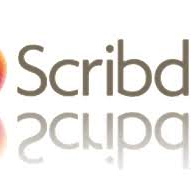(Just a note, this post is from our archives. Some references and links may be from past years.)
STATUS: Everything is literally on fire around the city of Denver. From Colorado Springs and Monument to Boulder to Fort Collins. I was so happy to see the rain this afternoon. Sadly it only lasted 20 minutes. We need more rain.
What’s playing on the XM or iPod right now? WINDOWS ARE ROLLED DOWN by Amos Lee
When I’m doing the Agent Reads The Slush Pile workshop, the toughest moment is when the volunteer reads an entry that is completely sound. In the reading, there is no problem that I can point to and say, “here, this is the issue” or “this is not working.” On a mechanical level, there is nothing wrong with the opening pages.
The form is acceptable, the grammar is fine, the writing is solid. I can even identify that the writer understands the tenets of craft. By all the “rules” of writing and publishing, I should be glowing about this entry.
But something is missing.
And I have no other word for the “what” that is missing except to say the work is lacking narrative “spark.”
In other words, the writing is missing a distinctive voice.
And when that happens, what can you say during the workshop? That I don’t love it? Well, that’s not accurate either because when something is missing “spark” it’s probably not just a Kristin subjective thing. Listeners sense it too. I can tell by watching the workshop audience. When something lacks spark, it loses people’s attention. They start to shift in their seats or stretch or focus on something else. It’s not just me that notices the absence.
On the other hand, when a work has that elusive spark, I know it, because the workshop audience becomes completely still and enrapt in the reading. Their attention is glued to the reader so as not to miss the next sentence. It’s a palpable change in the atmosphere of the room.
Sadly I can’t give an example because none of my authors have this problem. I’d have to grab something from the slush pile and I certainly couldn’t post it here without permission.
And speaking of getting read, it all begins with the perfect pitch paragraph in your query letter. Pub Rants University is hosting Goodbye Slush Pile: How To Write The Perfect Query Letter Pitch Paragraph for your Novel tomorrow night, Thursday, June 28 from 6 to 8 pm Mountain time. Given by yours truly.
I can’t tell you the number of emails I’ve received over the years from participants who have attended, revamped their query pitches, and then landed an agent and went on to sell. Dozens and dozens. In fact, one person even came up to me during the Litfest closing party the week before last to thank me.
You won’t want to miss it!
Creative Commons Photo Credit: Daniel Dionne




